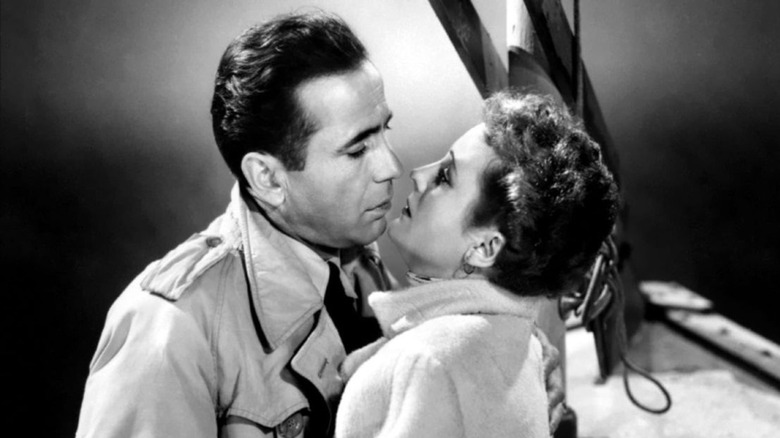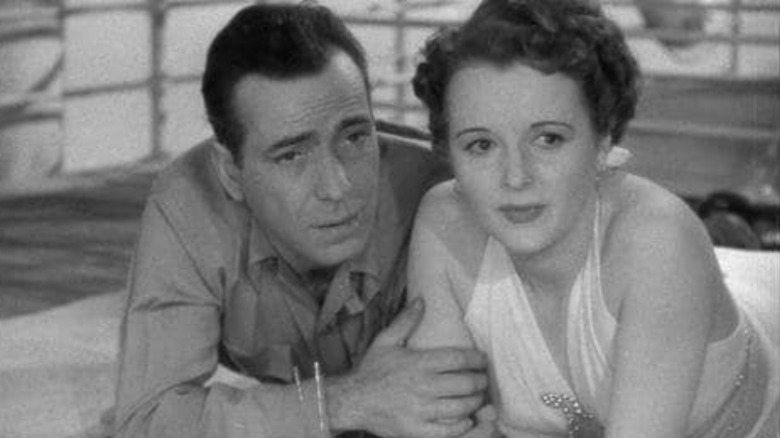Filming Hollywood Love Scenes Was Never Humphrey Bogart's Forte
When you think of suave and charismatic leading men of Old Hollywood, Humphrey Bogart is probably one of the first actors to come to mind. After all, how can he not? His roles in movies such as "The Maltese Falcon" and "Casablanca" established him as a smooth-talking ladies' man that can charm anyone. Given his illustrious love life with actresses like Mayo Methot and Lauren Bacall, that persona seemed to carry over into his personal life.
However, it might be surprising for many that Bogart wasn't huge on filming a particular type of scene with his female co-stars. According to the biography "Tough Without a Gun: The Life and Extraordinary Afterlife of Humphrey Bogart," author Stefan Kanfer claims that the actor was not comfortable filming love scenes, using one specific instance as an example of this timidness. When discussing the 1942 World War II film "Across the Pacific," Kanfer described one failed scene shot between Bogart and his co-star, Mary Astor, that involved copious amounts of teeth and tobacco.
How do girls usually act when you kiss them?
According to "Tough Without a Gun," a scene in which Bogart and Astor's characters kissed could have ended in disaster. Described as "never [being] very good at on-screen kissing," he had apparently gone into the kiss with his teeth rather than his lips.
"During a passionate two-shot with Astor, she suddenly pulled away," wrote Kanfer. "As the cast looked on, she snapped, 'Try not to knock my teeth out next time.'"
Needless to say, that doesn't sound particularly arousing or enticing, and that's because it wasn't supposed to be.
"I don't like love scenes," he apparently said. Bogart didn't stop there, though, as he had a further and completely understandable reason why he didn't like them.
According to Kanfer, he followed that up with, "'It isn't possible to shoot a love scene without having a hairy-chested group of grips standing four feet away from you, chewing tobacco. I'll handle that in the privacy of my bedroom.'"
This bluntness and uncomfortableness seems to sum up the mood surrounding the production of "Across the Pacific." The film was a spiritual follow-up to the previously-mentioned "Maltese Falcon," being directed by John Huston and having Bogart and Astor return in leading roles alongside Sydney Greenstreet. However, Huston was awaiting an eventual commission into the U.S. Army, which he received towards the end of filming. This anticipation and the short length it took for the movie to get made meant that the plot felt thin and underwhelming, although it was still a financial and commercial success.
"Mr. Huston has given [Warner Bros.] a delightfully fear-jerking picture," wrote Bosley Crowther of The New York Times. "Mr. Bogart is as tough and sharp a customer as ever faced the world with bitter eyes."

